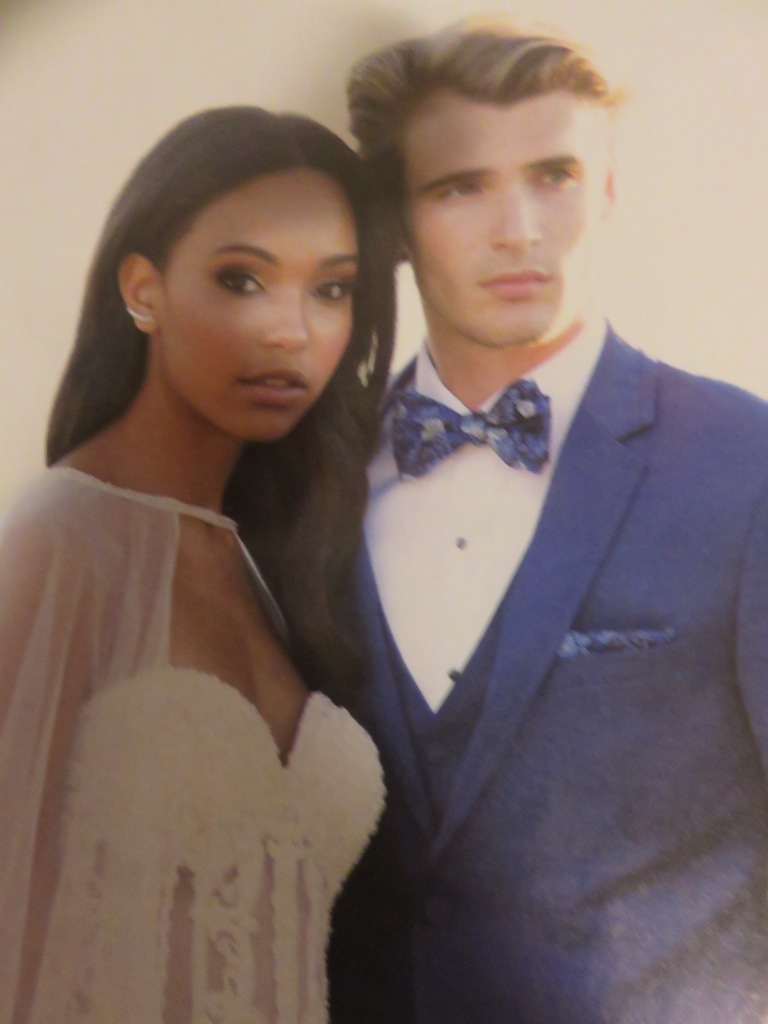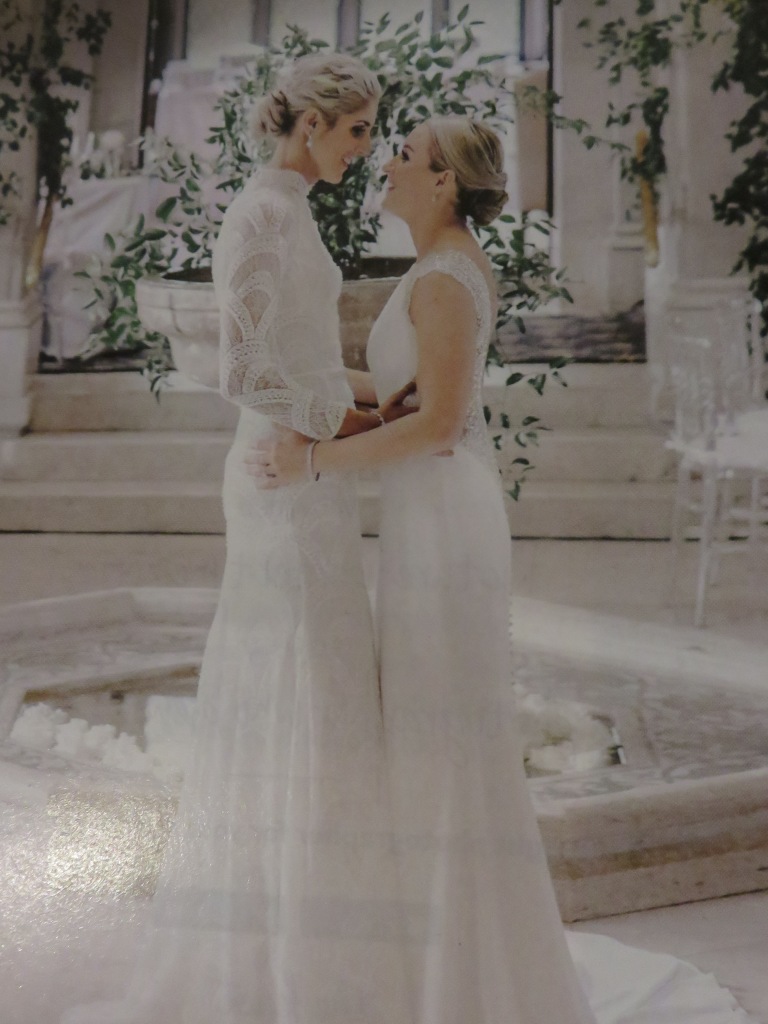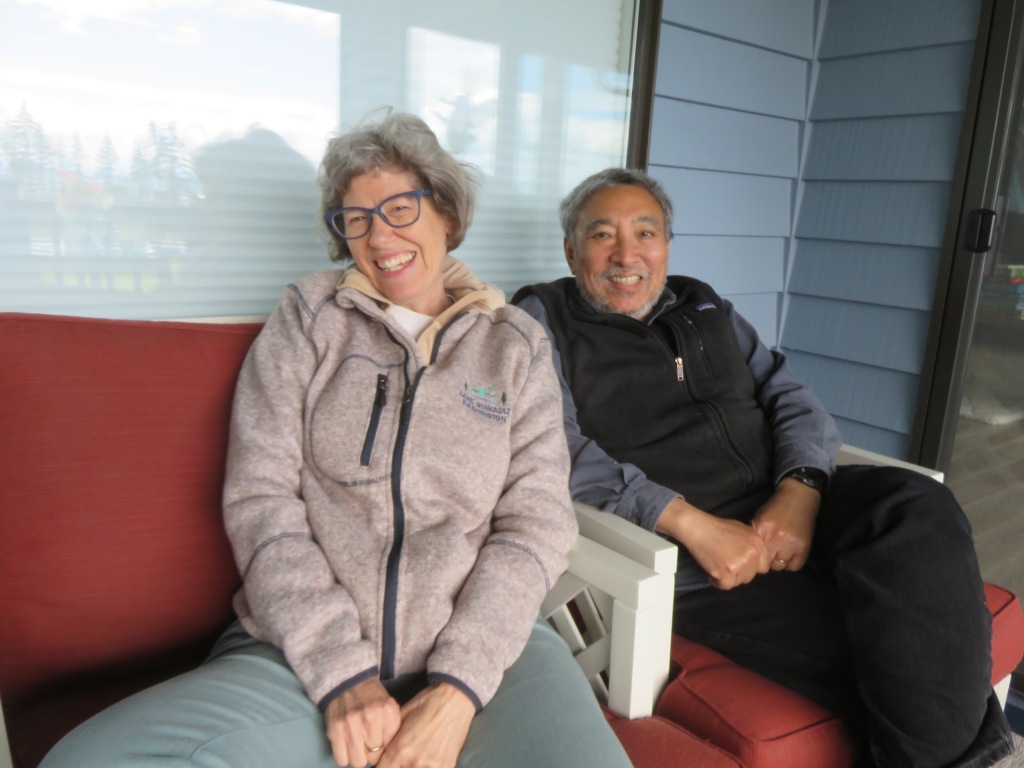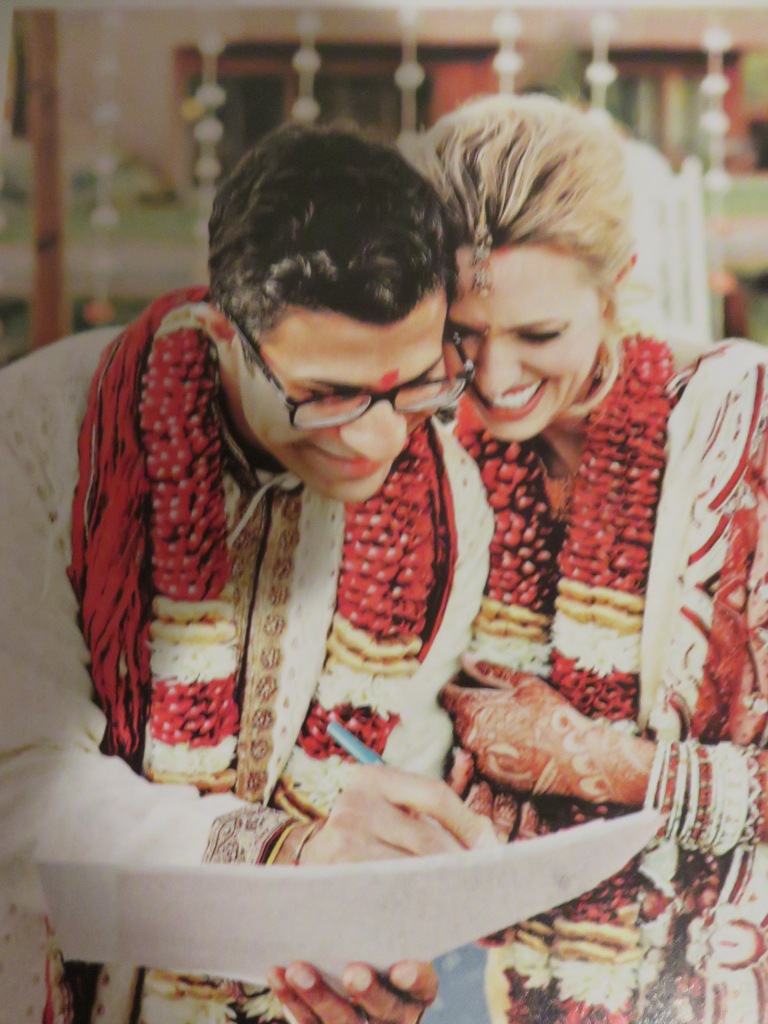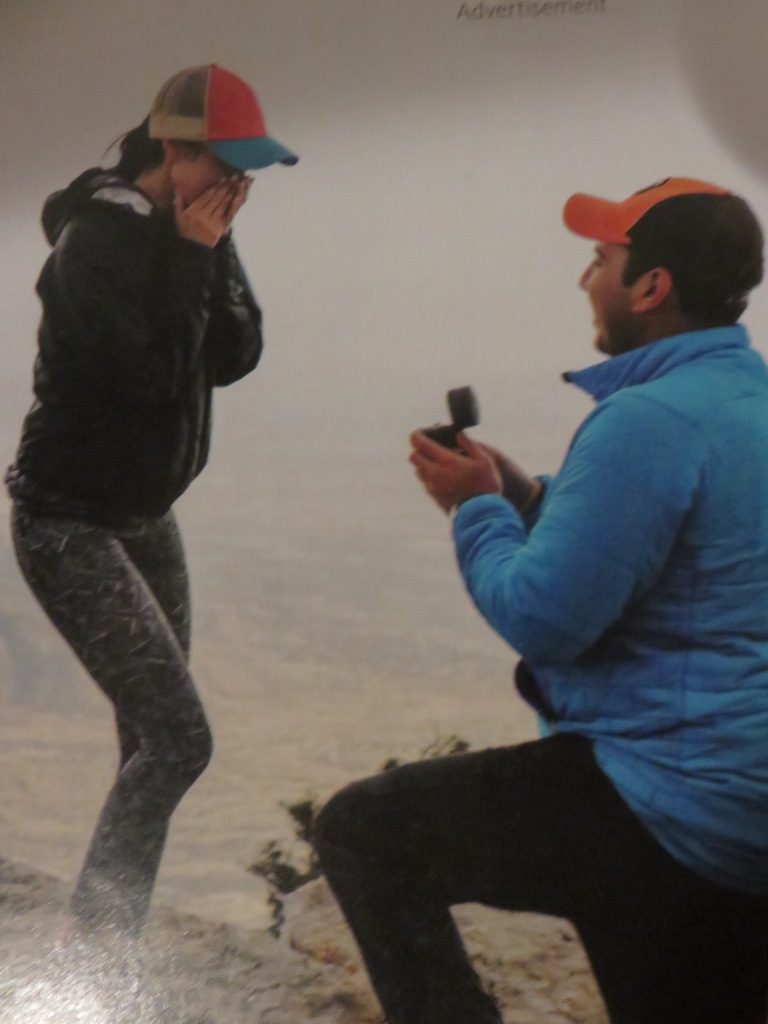
Who gets to marry whom? Should your skin color, genetic makeup, or country of origin matter? We’ve seen tremendous progress in legalizing gay marriage, but how far have we really come? I wonder about these things as we conclude a year in which we’ve struggled more than ever to understand each other. Many of our assumptions about our fellow human beings and our relationships are too flimsy to withstand such changing times. The 2002 World Book Encyclopedia (the edition I have on hand) has an entry on marriage that states, “if a man and woman are of a different age, nationality, religion, or background, their chances of a successful marriage drop significantly.” According to more recent research, biological anthropologist Helen Fisher found three particular capacities associated with happy partnerships: empathy, emotional self-control, and focusing on the positive (what you like about your spouse) rather than the negative. These could apply to anybody! Fisher’s subjects were in the United States and China, indicating that some measures of marital success are not culture bound.
I hardly considered limitations on whom I could marry, largely because of the systemic racism of white privilege whereby I didn’t have to think about such things. Where love and compatibility are not the main criteria in choosing a life partner, political and religious leaders have, historically, tried to intervene in people’s love lives, telling them whom they can and cannot marry. Until I was eleven years old, many states had laws banning interracial marriage. Then the U.S. Supreme Court struck down a Virginia anti-miscegenation law, thereby making it illegal for any state to prohibit interracial marriage. The court decided that such laws violate the Equal Protection and Due Process Clauses of the Fourteenth Amendment to the United States Constitution.
Sixteen years after that court decision, I married my husband, who is among the third generation of his Japanese family to live in America. We’ve been married more than thirty-seven years. Are we mismatched? Yes, in many ways that have nothing to do with ethnicity or skin tone. We have some cultural differences, for sure, but doesn’t everybody? We have two so called “mixed race” daughters and celebrate a mix of cultures. I like the old saying that variety is the spice of life. And, biologically speaking, variety makes for stronger communities, such as plant diversity in ecosystems.
In scientific terms, race is a social construct. Psychologist Beverly Daniel Tatum explains, “Despite myths to the contrary, biologists tell us that the only meaningful racial categorization is that of human.” Still, we persist in categorizing groups and highlighting supposed differences among those groups. Socially constructed boundaries defining my European ancestors broke down over the centuries. Partly due to intermarriage, the significance of identities, such as French or Dutch, diminished. It is easier, and widely acceptable, to say I am European American rather than list the half dozen countries from which I am derived.
Our daughter, Emily, and I both had our genes tested by 23 & Me, with predictable results. My ancestry was said to be 100% European and Emily’s was half European and half Asian. But one of the fascinating things about those tests is that, as they become more refined, they yield new and more specific results. I was notified the other day, for instance, that my genetic testing now shows that my ancestry is only 99.8% European, with a bit of “trace ancestry,” glimmers of unknown forebears outside Europe. (And, if you are wondering, I have a little Neanderthal, too.) Also, I can now say that I’m 22.4% British and Irish. My Irish ancestors likely came from County Donegal, County Dublin, County Cork, and County Kerry. That’s how precise the tests can be. (I’m not sure why my mother’s Manx roots were not similarly specified. I’d like to know more about my ancestors from Isle of Man.)
While genetic information is illuminating, it is not the whole story. I would never want to erase or even blur any of the ingredients that make up a person. In other words, I don’t want to be colorblind. How bleak that would be to overlook something as intrinsic and gorgeous as skin color! Lethal and divisive problems arise not from acknowledging differences, but from our attachments to what those differences mean. I am not saying we should ignore our identities or histories. Rather, I want to respect what identity means to each person, and honor loving, egalitarian relationships, regardless of gender, culture, or other human variations. Maybe the categories of people will continue to get broader and broader, as happened with European Americans, until I can simply say, “Me? I’m of the human race.”
As for marriage, it’s about time for it to be about love, first and foremost. What other force is strong enough to hold us together through thick and thin? Along with humor, I suppose. Fisher calls laughter “the elixir of survival – it evolved to get us through hard times.”
May we be in good health, good spirits, and good humor in the coming year! All the best to each of you. (I felt obligated to find photos of couples for this post. If any of these are not okay to share, I will gladly remove them. Except the last one. That’s me and my husband!)
